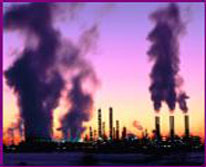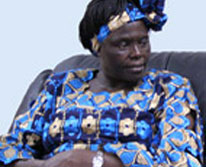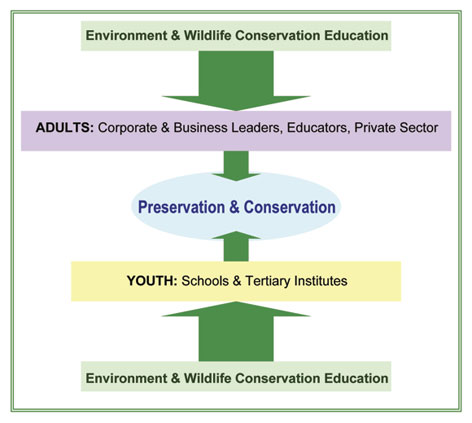The BIGGER Picture

Human Population Explotion
Humans have been treating nature and all other species for decades as "something" separate – as "something" that man owns, have control over and are the self-appointed managers of. The truth is that we are just as part of nature as all the other animals and plants sharing this planet with us.
However, as the single species having the most profound effect on nature, we allowed our own numbers to increase uncontrolled - by far exceeding the earth's capacity to sustain us.
Taking the bigger picture into consideration, it is a fact that despite numerous conservation efforts, a rapidly expanding human population, damaging industrial and agricultural practices, ever increasing pollution, climate change, and other dynamics continue to threaten our natural world and quality of life. Plant and animal species are disappearing at rates estimated to be 100 to 1,000 times greater than normal and the benefits that nature provides people — from fresh water to food to flood control — are also under siege.
Danger

Destructive Behaviour
Global Warming and Climate Change is real and it's happening much faster than was predicted just a few years ago. We have reached the situation where preserving and conserving remaining wildlife and wild places, aren't enough – man's attitudes toward the environment and the way we treat it must change.
Although profoundly disturbing, we are potentially facing a drastic change in life as we have know it, mainly due to our greed and destructive activities, with habitat destruction and pollution at the top of the list.
Good news

Vision of Environmentalists
The good news is that the solutions to climate change exist.
The technologies are available right now and there are immense economic opportunities from expanding their use. The only real question is: How can we make it happen?
The answer: we can solve this crisis - specifically by not only raising the awareness of our fellow citizens about this crisis, but also by informing and educating them about potential solutions - all of us, together - can preserve the climate balance on which humanity and our planet depend.
Humankind must set a new goal:
to conserve "enough of everything", not just the rarest or most imperilled species or places. This means at least doubling the rate of effective conservation around the globe within the next 10 years. The aim is to create a world in which the ecosystems that sustain all life - people as well as plants and animals - are valued and endure for generations.
Now, with the fore-mentioned in mind as well as the fact that in Africa, not to even mention the rest of the world, numerous wildlife conservation organisations already exist and are doing wonderful work, the challenge is to not copy or duplicate any existing wildlife conservation programme, but to address the real issue: changing man's attitudes toward wildlife, the environment and the way we treat it.
How can this be achieved?
By focussing on environment and wildlife conservation education of:
- not only our children - tomorrow's leaders and decision makers, but also on
- the education of the adult generation - today's leaders and decision makers – the people possessing the means, resources and authority to contribute now, either directly on a governmental and business level, or indirectly by pushing through politics and pressure groups.





